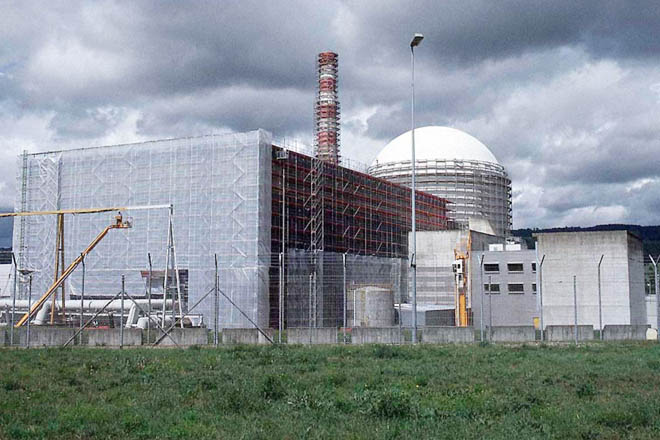Iran may be constructing a secret uranium enrichment plant outside of international nuclear safeguards, according to a report from the Institute for Science and International Security, Bloomberg reported.
"Although suspicions are increasing that Iran is building a secret centrifuge plant, ISIS assesses that it is unlikely that Iran could currently have such a plant or finish one in the next year," according to the report yesterday from the Washington-based research group.
Iran is already increasing its stockpiles of 19.75 percent low-enriched uranium which, with further processing, would be enough to fuel a single nuclear bomb "by early next year," according to ISIS analysts David Albright and Christina Walrond.
If Iran "modestly expands" its capability to make 19.75 percent uranium consistent with its existing plans, it could have enough for a nuclear weapon by the end of 2012, they said. "Production of enough for a second nuclear weapon would take many additional months."
The report comes days before a third round of international negotiations with Iran over its nuclear program, which Israel and western nations say they suspect is being used to develop a nuclear weapons capability. Iran says it is purely civilian and that the 19.75 percent uranium is needed for current and future reactors producing isotopes for medical use.
Nuclear Negotiations
Iran's chief nuclear negotiator, Saeed Jalili, is scheduled to meet officials from China, France, Germany, Russia, the U.K. and the U.S. in Moscow on June 18-19. EU foreign policy chief Catherine Ashton heads the negotiations. Iran must show it is committed to addressing international concerns about uranium enrichment, a European diplomat told reporters June 13 in Brussels after requesting anonymity.
At earlier rounds, European and U.S. negotiators pressed Iran to halt production of 19.75 percent enriched uranium at its underground Fordo plant, located near Qom, and its Natanz facility. They want Iran to agree to ship stockpiles out of the country to allay concerns that the material could be further enriched to at least 90 percent for bomb use.
"By any realistic analysis, Iran is making far more 19.75 percent uranium than it needs," said Albright, a physicist who is ISIS president, and Walrond, an analyst.
'Breakout' Possibility
The current stockpiles are monitored by the Vienna-based International Atomic Energy Agency to avoid diversion for weapons use. To build a nuclear bomb, Iran either would have to "breakout" of current international safeguards -- providing a signal that could lead to a military strike by the U.S or Israel -- or could try to conduct enrichment secretly.
"If Iran seeks to breakout at Fordo only, the time to produce enough weapon-grade uranium for a nuclear weapon is estimated to exceed two months," the analysts said. "In this case, there is adequate time for both the detection of such a breakout and an international response."
Iran could reduce the time by further processing some of the 19.75 percent uranium using centrifuges at Natanz, its other known enrichment plant, they said. That would reduce breakout times to as little as about a month and require a relatively rapid detection and response, they said.
In contrast, if Iran had to rely mainly on its stock of 3.5 percent uranium, a level applicable for nuclear power reactors, breakout times to obtain enough weapon-grade uranium for a nuclear weapon would be several months, they said.
Military Strikes
Even with a relatively short breakout time of one month, the Natanz site -- regularly visited by IAEA inspectors -- is highly vulnerable to military strikes. "On balance, Iran may feel deterred from breaking out there," the two researchers said.
Because the underground Fordo enrichment plant is so deeply buried, they said, "it raises concerns that Iran will try to breakout at this site, believing that the site is impervious to military strikes or that breakout can be achieved prior to a military strike."
"The ability to fully destroy the Fordo site is open to debate, but nonetheless the United States and Israel have the military capability to shut down operations at the facility for some period of time," they said.
Iran has acknowledged that its enrichment operations have suffered setbacks from damage from the Stuxnet computer virus that cybersecurity experts have said may have been developed by Israel and the U.S.






